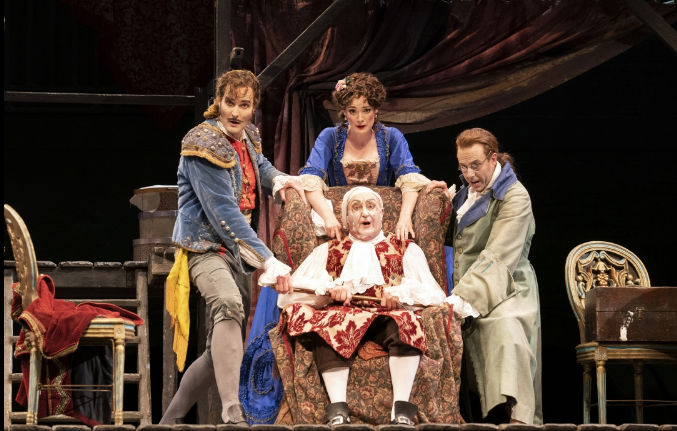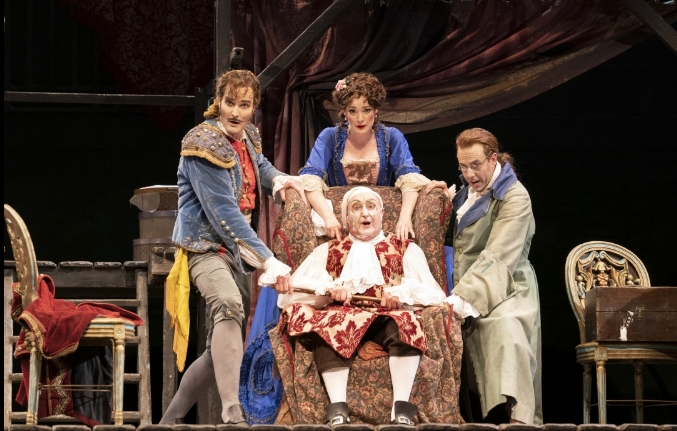Rossini’s The Barber of Seville by Welsh National Opera at the New Theatre Oxford

UNMISSABLE.
Rossini’s The Barber of Seville
by Welsh National Opera at the New Theatre.
The annual visit of Welsh National Opera to Oxford’s New Theatre is one of the treats of the year, and all the more welcome since it didn’t happen in 2020. This delightful production of Rossini’s celebrated comic opera The Barber of Seville is just what we need at this dismal time of year to lift our spirits and put a smile on everyone’s faces.

Nicholas Lester (baritone) made a splendid Figaro, flamboyant in his Spanish majo costume with scarlet waistcoat and flashy epaulettes. He has a fine voice and a lot of comic acting ability. At times his hand gestures reminded me of John Cleese. It is thanks to the clever and resourceful Figaro that the young, lovelorn Count Almaviva finally manages to wangle a meeting with the closely-guarded Rosina, despite all the strict precautions of her guardian Dr Bartolo.
Nico Darmanin (tenor) made a good and likeable Almaviva, prepared to undertake any absurd ruse to obtain his aim. He first impersonates a drunken army officer and then a shy young music teacher to gain admittance to Dr Bartolo’s house. It is true that when obstacles arise, he quickly solves them by bribery, but that is Beaumarchais’s satirical portrayal of the ancien regime, in the original source play. When Almaviva finally gets his bride, he tells her guardian to keep the dowry, a magnanimous gesture.
The undoubted star of the evening was Heather Lowe (soprano) as Rosina, a heroine who is determined to escape constraint and marry the man of her choice whatever her guardian may say or do. Her performance of the aria “Una voce poco fa” using the two puppets gained applause and Bravos.

This clever and visually fascinating production of Rossini’s dazzling score is a revival of the classic one by Giles Havergal and Russell Craig, who have taken inspiration from 18th and 19th-century genre painting that depicted Spanish life and theatrical scenes. This creates a visual feast, colourful in a subtle way. It is like walking into a Goya painting. The main action takes place on what appears to be a stage set within the stage. The chorus and opening tableau place us in Rossini’s time – 1816 – but the main action is clearly set in the 18th-century, the period Rossini was trying to re-create, musically as well as dramatically. The use of a single set in the main square of Seville, with upper and inner rooms exposed, is economical and effective.
The libretto is translated into suitably light-hearted, witty verse by Robert Macdonald and the comic roles of Basilio (Keel Watson) and Bartolo (Andrew Shore) were amusing. There were problems of balance in this performance, with the orchestra frequently being a bit too loud for the singers. Rossini’s famous crescendo lacked impact because it did not start softly enough. The secret of a really effective crescendo is to start pianissimo and guard against any tendency to get faster. The conductor needs to play down the volume and keep a tight hand on the ensemble. Still, on the whole this is a scintillating, sparkling, ebullient production and you would be mad to miss it.
Julia Gasper.